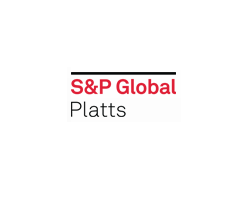Coking Coal Underpinned by Steel, Supply Logistics

May 21, 2018 - Met coal prices are currently underpinned by strong margins for steel prices and limited additional coking coal supply, as well as ongoing logistical constraints in the US and Australia, Seaport Global said Monday.
While met coal prices have fallen so far in the second quarter, compared to a peak in Q1 for most grades, levels are still comparatively high, Seaport said in a report.
Provided steel markets remain strong, coking coal prices may be at a floor for this year and next, with increases potentially to come, it said.
The TSI Premium HCC benchmark has fallen to average $198/mt FOB Australia since March 1, from $237/mt FOB used for Q1 quarterly contracts. The March to May average is used to derive quarterly pricing for Q2 under some contracts.
Steel to raw materials price spreads have expanded this year due to strong global steel prices.
Earlier shipment disruption stemming from US railroads hit by weather and capacity management, and higher demand for US thermal coal exports competing for port slots, may be dying down.
But in Australia, longer burning rail issues in Queensland are coming back to the fore, according to market sources.
Australian railroad Aurizon's notification to the Queensland Resource Council (QRC) it would cut train movements on its Goonyella Line may add support to met coal prices from potential supply falls, Seaport said.
Aurizon's decision to cutback shipments may impact as much as 14 million mt/year of met coal supply, unless the company settles its dispute with the regulator, Seaport said.
The matter centers on Aurizon's permissible chargeable fees and the impact on maintenance plans which has led to cutting rail movements.
"From our own conversation with Aurizon, we have always thought they were serious about cutting met coal shipments unless there was a material change in the regulator's final decision. That decision will likely be released some time in Q4," Seaport analysts led by managing director Mark Levin said.
"In short, we don't expect the regulator to alter the draft decision enough to cause Aurizon to change course. As such, we think it really comes down to direct government intervention, which is becoming increasingly plausible given the likely loss of hundreds of millions of dollars of royalties and taxes, as well as the potential impact on jobs in a part of the country so heavily dependent upon mining," they added.
Seaport expects that without government intervention or significant change to the regulator's cost of capital assumption, met prices are likely to remain "at or above their current levels well into 2019, assuming no material change to the bullish steel market backdrop."
High coking coal prices are leading to strong free cash flow generation at US mining companies based on their cash costs as reported in the first quarter, Seaport said. US high-vol A and US low-vol have slipped in Q2, while support for high-vol B came from its relatively lower prices boosting demand.
CoalZoom.com - Your Foremost Source for Coal News

